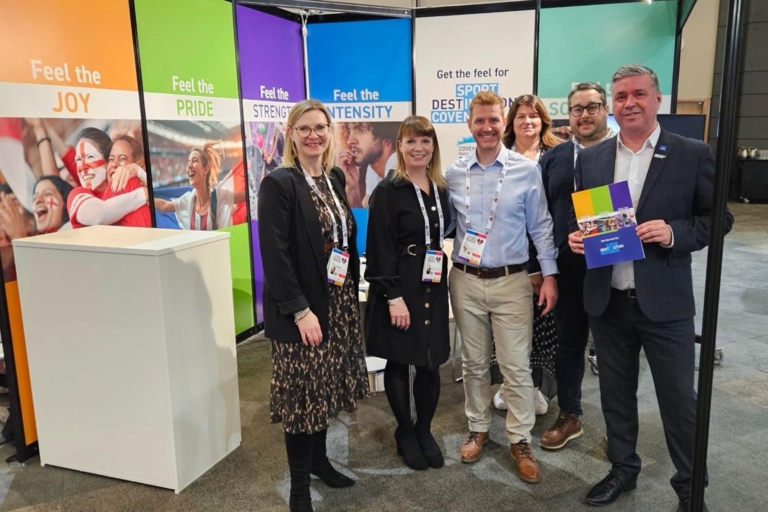The Clarify roundtable: The keys to encouraging more women into technology


Celebrating the talent and achievements of women in business, and ahead of its sponsorship of the 2015 Women in Business Awards, Clarify invited a select audience of successful women to discuss the topic of women in technology enterprise sales. The event came as Clarify revealed that just over 20% of field sales positions are held by women, while the figure for sales management is much lower. Clarify’s founder and CEO Claire Edmunds, herself the recipient of 2014 Woman of the Year at last year’s Awards, wanted to ask the question why.
As co-founder of Boardwalk Leadership, which provides training and research consultancy in gender diversity and inclusion, Dr Shaheena Janjuha-Jivraj works extensively in the field of women’s leadership in business. She sits on the advisory boards for the All Party Parliamentary Group for Entrepreneurship in the House of Lords and is also an associate professor at Henley Business School, where she previously established the Henley Centre for Entrepreneurship. Dr Janjuha-Jivraj has just completed a policy report on Women in Leadership across the Commonwealth countries and chairs this event.
What are the enablers and inhibitors which make careers flourish for women in technology?
Xerox’s Emma Braithwaite believes sometimes women can “inhibit themselves”, explaining that when a woman looks at a job specification, she is more likely to focus on the 30% of the role she can’t do, rather than the 70% she can. In that way, women will talk themselves out of a promotion.
Rebecca Sewell, Clarify’s own head of talent acquisition, commented that when she asks women to reflect back on an interview situation, in nine out of 10 cases women will mention the negatives, whereas men will focus on the positives.
IBM’s Natalie Lamb said the environment that people are brought up in and the behavioural stereotypes they have experienced are key factors. As someone who regularly mentors graduates she believes attitudes to risk and the levels of confidence are important.
“You can change the way you behave and operate. From my mentoring I know it’s all about how confident people feel about themselves, and male and females adopt different perspectives to it. Women think they can do it and men will say I want to give it a go. Confidence and risk plays a big part in our abilities to adapt to a role.”
Fear of failure was a concern for Claire Edmunds, who spoke of junior managers who were often worried about taking on additional responsibilities: “They are nervous of doing things wrong so fear of failure becomes an inhibitor. Once people are given the encouragement to take risks and they give themselves permission to make mistakes, theycan fly.”
When companies say they encourage innovation, do you see that panning out across the organisation?
Edmunds said it is down to managers and mentors: “Where do you go to get someone to say ‘try it?’.” It is difficult for women to say that to themselves, it is very much about the environment you are operating in.”
Lamb said the size of the company was also important, pointing out that she had started life in a small start-up which was then acquired by IBM. “I am my own worst critic,” she said. “You have to have the confidence to say ‘I am doing all I can’.”
Picking up the mentoring theme, Lamb added that the advice she gives to graduates is to ensure they have the right support around them; to be clear about what they want to achieve; and not to constantly seek approval.
“It is not about having the best degree or top marks, it is about them as individuals and how they stand out in the interview process. Male or female, it is about having confidence – a lot of people think they can go into sales but a lot of them can’t. The best piece of advice I can give someone is to find something that is ‘their thing’.”
Dr Shaheena Janjuha-Jivraj highlighted research from the Harvard Business Review, which showed that while having children had no impact on the career progression of MBA graduates, women with children were not being given the bigger “stretch” roles that went instead to men, enabling them to be better prepared for promotion.
Jacquie Rees said it was true that a woman with a sick child can be seen as a liability and questioned what a mother would do if they had a business trip lined up to the US and was unable to travel.
That had been exactly the issue faced by single parent Louise Delahoussaye, who said although she had been able to get cover, her manager had been very understanding about the possible need to cancel her trip, saying that her priority must be her family. She said that the ability to work from home had been one of the key criteria for choosing to work for VMWare.
Rees described the moment she returned to work after having her child as “totally liberating”. “I had no intention of going back to work but having someone call me and say ‘we want you to come back and work for us’ was brilliant. I remember on my first day back thinking ‘I am not a mother any more’.”
Lamb believes it can come down to the type of industry: “In some very male-dominated sectors there is the legacy of stereotyping, but in technology businesses thinking is more advanced in terms of the ability to work from home and do flexible working. I work for a company which encourages flexible working, but I have friends who don’t.”
The point was also made however, that there can be times when it is the man who has to stay behind to look after a sick child.
The comments led Edmunds to ask why, if cultural barriers aren’t holding back progression, more women aren’t being attracted into technology sales?

What motivated you in your career choice?
Braithwaite spoke of how she was drawn into technology by an advert specifically aimed at female graduates but, despite that, she was the only girl in her region and the men working with her had said she “wouldn’t last three months” – something that made her only more determined to succeed.
Holly Hamilton said when she left university, her father kept asking her why she wanted to work in sales. His view was that sales people “weren’t very nice” because they only focused on sealing the best price and told her it “wasn’t her”.
“It was only when he got to understand and see how you can sell technology in a different way that he finally understood,” she said, adding that when she was at school, no-one had ever suggested that she went into a career in sales.
Victoria McQuade questioned whether the fact that today’s generation of children and young adults is more tech savvy means they will be more likely to go into a technology career.
Delahoussaye applauded ventures such as Bring Your Daughter to Work Day, which she said encouraged younger women to start thinking about technology careers early on.
Hitachi Consulting’s Claire Thomas shared an initiative it is developing to support and encourage more women to consider a career in technology. Its STEM initiative aims to encourage girls and young women to embark on careers in science, technology, engineering and maths. As part of the programme, employees will have the opportunity to work at local schools and careers fairs, raising awareness of the skills and qualities needed for STEM roles at Hitachi and to help students identify the types of skills/qualities they have developed themselves.
In preparation for the roundtable, participants had watched a short video showing how, in the US, a female member of staff discovered she was earning only 78% of the salary enjoyed by her male counterpart. As a result, she only completed 78% of her day-to-day activities. Dr Janjuha-Jivraj asked for their first impressions.
Rees’ reaction was one of surprise, saying that working in a close team you tend to know what people are earning and she had never come across a similar situation.
Countering that argument was Delahoussaye, who said she had been convinced that she had been the lowest paid person in her team when, during nine years with a company, she had a minimum pay rise year-on-year. “I was told the only way to get a substantial pay rise was to leave or threaten to leave.”
According to Lamb, the fact that there are a high number of acquisitions in the technology industry makes it a challenge to ensure wage parity when new employees come on board from other companies.
Dr Janjuha-Jivraj asked if the gender difference meant women with the additional responsibilities of childcare stayed in jobs longer because they offered more security, flexibility and the ability to manage their lives better, as opposed to simply asking for a higher salary in the way that men would.
Delahoussaye said she had felt the risk of changing jobs was “too big” which was why she had chosen to ask for a pay rise instead.

Are there cultural factors working for a US technology company which affect your career?
Edmunds’ experience was that having to juggle evening conference calls with US employers and the amount of travel usually involved was a reason why many women moved out of technology sales.
As a working mother, planning ahead for overnight stays is all about being very organised, said Rees.
“I worry about the toll travel takes in the future,” said Braithwaite, who regularly puts her children to bed in Manchester and then drives to London, arriving at a hotel at 1am so she can be fresh for a business meeting at 9am.
“In sales it’s expected that you will have to travel, every year we have kick off events and conferences and the expectation is you have to travel. I find it just means being organised and making sure you can accommodate it,” said Delahoussaye.
Thomas said the flexibility to arrange client meetings and associated travel to fit within time commitments in and out of work, plus the use of more virtual meeting facilities which are now common in organisations, helps ease some of the pressure of travel.
Their comments prompted Dr Janjuha-Jivraj to note that the discussion was moving away from being one of women and childcare to one about the ability to be really organised.
Everyone agreed that there was a really positive story to be told because the technology industry – and sales roles in particular – allowed more mobility and flexibility than some more desk-based jobs.
Who are your role models and who do you speak to about your career aspirations?
For Rebecca Sewell, it was Edmunds herself who, she said, had been excellent at providing vision, mentoring, motivation and support. As a parent whose own daughter has just gained a degree, she said she would be taking her daughter into Clarify for work experience, ensuring that she had exposure to the technology sector.
“We have a great flexible working environment at Clarify that works for families and single parents, male and female, and I feel as a woman that I am being heard and listened to.”
For Delahoussaye, her role model was her father, who she described as “amazing” for working his way up in the corporate publishing sector. “If ever I want advice, he is the first person I go to,” she said.
Within VMWare, she described one female colleague as “aspirational” but said she had always struggled to approach her and welcomed any advice on how to do so.
It was an opportunity for Lamb to talk about an internal programme they had run focusing on raising awareness and being more transparent around career progression in their business. “Often people feel overlooked if they are not ‘in the club’; they don’t know where to go to find the information that is there. The programme was about showing visibility across the company.”
She believed the key to career progression was to ask for business challenges, to talk to senior individuals and ask to help with projects. In her case, going to three different people for different scenarios had worked better than having one mentor and meant her name was known in wider circles.
Dr Janjuha-Jivraj brought up research by Catalyst which showed that women were more likely to be mentored, whereas men were more likely to be sponsored, and it was the latter that tended to lead to promotion.
Delegates however, felt that for many women it came down to a feeling of trust as part of the relationship building process, knowing that you could talk to your line manager about the need for flexibility because of a home situation or how to deal with a difficult customer.
Edmunds said she liked Lamb’s approach of not following a particular mentor scheme. She had actively sought a mentor outside the business, someone who could challenge her behaviours, and had then moved on to financial coaching. “It was about me as a person and what I needed at the time that would allow me to do more.”
That prompted Lamb to say that female graduates in particular would come into the business and immediately say they needed a mentor. “I always asked why, but they don’t seem to know why they would and what a mentor would do,” she said. “It’s about taking a sensible approach and they should engage with their managers first to understand what they may need.”
Braithwaite said although she had never had a mentor, she had been championed by women she had worked with, adding: “The more you network and work alongside people, the more they get to know you and what you are capable of. I wouldn’t know where to go and get a formal mentor but I would agree that for graduates coming in, it is something they would expect.”
Why isn’t there a higher proportion of women in senior technology roles?
The question of children came back on the agenda, with Braithwaite saying that women were often successful in their careers until they had children, after which they returned to work part-time or in job shares, which seemed to “devalue” them in the eyes of their employers, who may be less likely to promote them.
“Some people feel unless they can commit to going back full time, they are being hampered. It’s almost as if their career is on hold,” she said. “It is not about childcare, it’s more about the perception of the job, if it requires a full-time position and whether the employer is prepared to change.”
Speaking from an employer's perspective, Edmunds said that in certain roles it can be difficult to accommodate people working a three-day week and said for those who chose to go that route it was more of a “lifestyle decision”.
Rees commented that there was “no such thing” as a part-time sales person.
Lamb’s view was that from a talent-nurturing perspective, one of the challenges was finding enough women to step up, saying: “We have a higher number of senior female leaders in positions than we have ever had before but it would be good to see more. I would see this changing even more over the next five years.”
Delahoussaye thought there was pressure on businesses to attract more women and Rees agreed, saying: “They are seeing the light. Women are better at consultative sales, we talk more, we listen more, we ask more questions, we are enablers and we are simply better at it.”
Hamilton said that only 10% of applicants for roles at Clarify were women, which led Rees to ask if that was due in part to the way job specifications are written. Delahoussaye, who went straight into the world of work rather than going to university, said she always used to steer clear of jobs that specified a degree requirement, something she saw as favouring men with a good education track record.
Braithwaite on the other hand, said she thought today’s young women were much more confident and empowered and “believe they can change the world”.
Clarify’s research found that of 6,000 people in senior enterprise sales, only 600 were women and Dr Janjuha-Jivraj asked how those figures could be increased.
For Lamb, it was about companies making themselves more attractive to women. “How you position your company is a big deal. It’s about making your image something of interest, making sure that whatever the values are, such as flexible working, they are interesting enough for people to want to join. Those are the things that will make a difference.”
Rees’ mention of a large UK business which appears to aim its advertising specifically at women prompted Dr Janjuha-Jivraj to highlight the fact that in the US, companies appeared to be much more proactive when it came to attracting women and she asked if there was a reluctance to do the same in the UK.
“At the risk of being controversial,” said Lamb, “I have worked in scenarios where it was only female oriented and I found it exceptionally dangerous in terms of balance; their style was very destructive and it drove me insane.”
Dr Janjuha-Jivraj questioned if diversity “had had its moment” and said if companies simply paid lip service to the concept, would it disappear?
Edmunds said having to “tick all the diversity boxes” could be treated as a “bit of a burden”, when it should really be about extending the talent pool. For Rees however, it was all about having a cross-section and balance, while Lamb said she saw diversity and inclusiveness as also being about personal behaviour and awareness, adding: “It needs to become ‘business as usual’. It should be inherent in the way you behave.”
It was an opportunity for Rees to promote “The Unipart Way”, which gives everyone in the company the chance to have their views heard through weekly “communication cell” sessions. It not only makes all employees feel they are listened to, but encourages diversity, continual improvement and a feeling of being part of the team.
Delahoussaye talked about VMWare’s different workstreams, which include topics such as diversity and worklife balance, and said the opportunity to post comments online gave everyone the chance to make their voice heard, with management picking up on those topics which had the most hits.
With a female CEO and a very diverse US board, Braithwaite said Xerox had an ongoing commitment to diversity and equality, which includes online courses, but noted that when she advertised for a business development manager, only men applied.
That brought the discussion back to whether job adverts could be worded to make them more appealing to women, with Rees suggesting adding phrases such as “flexible working” could make a difference.
Lamb said it was all very well having lots of programmes on diversity and worklife balance, but it was important to be visible – to be seen to be doing them as well. Unless those in charge of different regions and countries managed to engage their employees and “turn things around”, then they wouldn’t make the progress they were looking for. “You need to see change, to show people it is happening.”
What can organisations do to speed up change and encourage more women into the tech sector in the next 10 years?
“I think we are already doing it,” said Rees, who forms part of a small sales team of two women and one man. “Our team is growing but never once do we have a conversation about needing to balance it with another man. It is all about the needs of the job.
For Dr Janjuha-Jivraj, it was about more visibility of women within the sector and she praised Clarify for its proactive role in raising the topic. “We need so many more women stepping up, it is a struggle to find enough role models,” she said.
“It is about our language and how we present ourselves, I think women are doing such a good job in terms of their work and what they are doing to promote other women and I think there isn’t enough recognition.”
She concluded: “It always shocks me when women say ‘I was lucky’, they worked hard but they were ‘lucky’. We respond by saying you weren’t lucky, you worked really, really hard to get there.”
Participants
Claire Edmunds: CEO Clarify
Emma Braithwaite: LEO sales manager, Xerox
Louise Delahoussaye: Account manager, VMWare
Natalie Lamb: Director commerce, UK and Ireland, IBM
Jacquie Rees: National business development manager, Unipart
Holly Hamilton: Senior business development manager, Clarify
Rebecca Sewell: Head of talent acquisition, Clarify
Victoria McQuade: Head of communications, Clarify
Dr Shaheena Janjuha-Jivraj: Co-founder of Boardwalk Leadership












